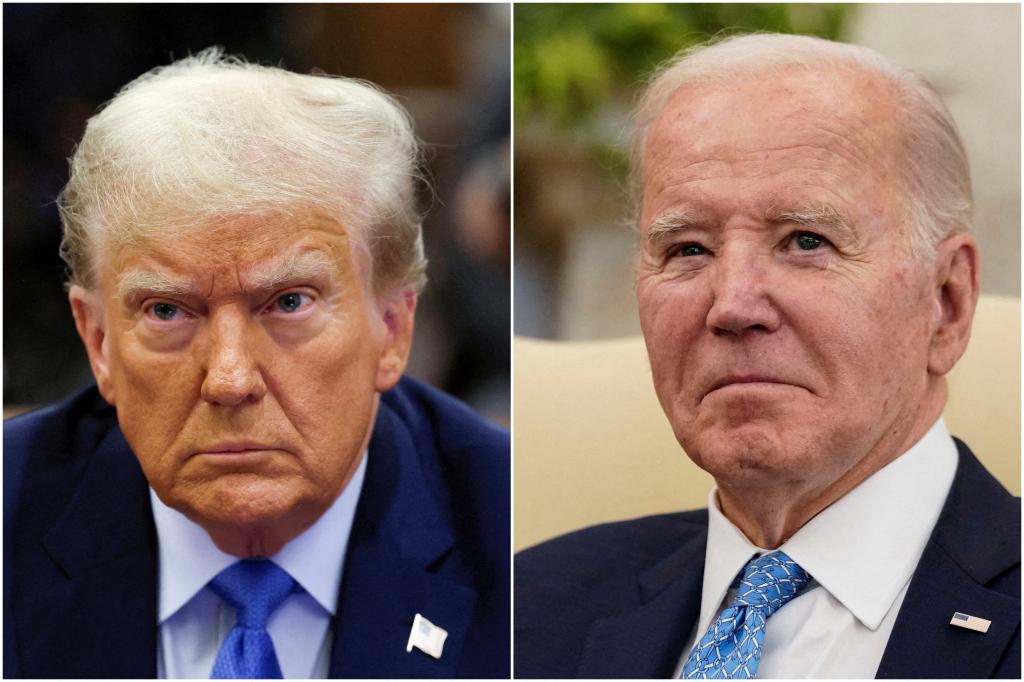President Biden’s team has made it clear that there will be no additional debates with former President Trump for the 2024 presidential election, indicating that the two already agreed-upon debates will be the only ones that take place. The decision was announced following the revelation that Trump had suggested a fourth presidential debate against Biden through Truth Social, stating that it was important to engage with the Hispanic community. Trump’s announcement caught NBC News off guard, as they had been negotiating with the Biden campaign for a possible third debate. Despite this, both campaigns have expressed willingness to participate in a vice-presidential debate, but the specifics of such an event are still being determined.
The two scheduled debates that both Biden and Trump have agreed to participate in are set to take place on June 27 hosted by CNN and September 10 hosted by ABC News. Trump’s unexpected proposition for a fourth debate with NBC and Telemundo was met with resistance from Team Biden, who made it clear that there would be no additional debates. Despite Trump’s eagerness for more debates, Biden’s team firmly stated that there would be no more discussions on the matter. NBC News, after missing out on the first debates, tried to enter the conversation by initiating talks with the Biden campaign, but it seems that their efforts were in vain as the decision to limit the debates had already been made.
The back-and-forth between Biden and Trump over additional debates highlights the current state of the 2024 presidential election. Trump’s desire for more debates, especially one aimed at engaging with the Hispanic community, reveals his strategy for winning over key demographics. On the other hand, Biden’s team’s refusal to participate in any more debates underscores their confidence in the two scheduled events and their belief that there is nothing more to be gained from additional matchups. The dynamics of the debates, who hosts them, and the platforms they are aired on are all key factors in shaping the narrative of the election and influencing public opinion.
The decision to limit the debates to two scheduled events has implications for the overall campaign strategies of both Biden and Trump. By closing the door to additional debates, Biden’s team is signaling that they are satisfied with the current debate schedule and do not see the need for further engagement with Trump. This could indicate a focus on other campaign strategies and priorities as the election approaches. For Trump, the rejection of his proposal for a fourth debate could prompt him to shift his tactics and focus on other ways to reach voters and garner support. The decision not to engage in a vice-presidential debate also leaves room for uncertainty in terms of how key issues and policies will be discussed and debated during the election season.
While both campaigns have expressed openness to a vice-presidential debate, the details regarding such an event are still unclear. Biden has accepted a proposal to host a vice-presidential debate from CBS News, while Trump has expressed a preference for having the debate aired on Fox News. The differences in platform preferences highlight the strategic considerations that both campaigns are making in terms of reaching their target audiences and maximizing their impact. As the campaigns continue to unfold leading up to the election, the decisions around debates and other key events will play a crucial role in shaping the narrative of the election and influencing voter perceptions.


